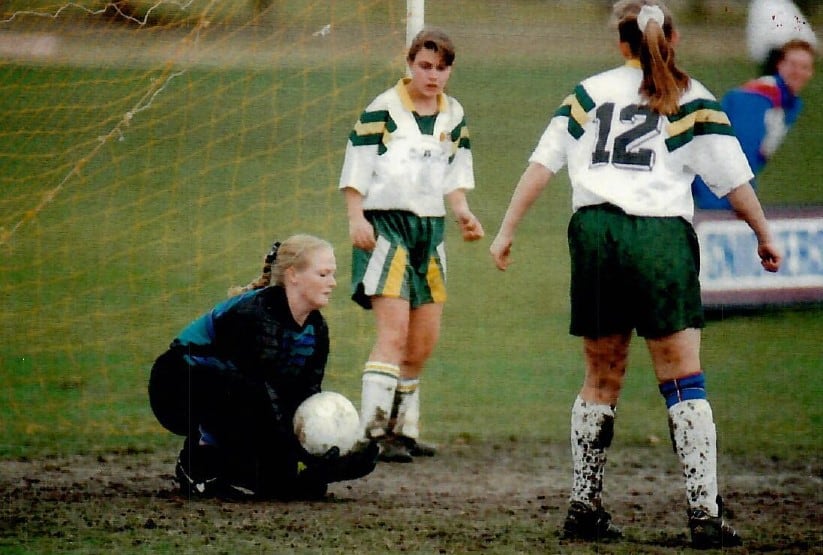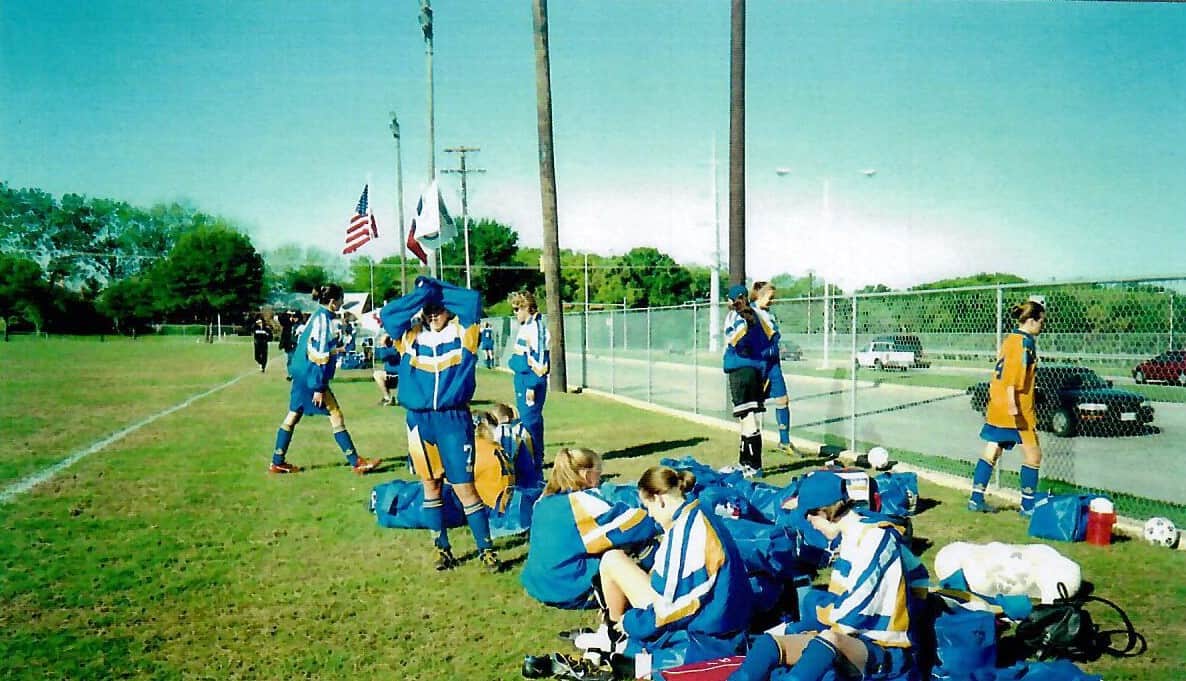
By Nathanael Merchant
Judith Clark’s earliest football memories were going to her brother’s games on the weekend and lending a helping hand around the canteen, serving meat pies and lollies to the other families watching.
But there was one thing that never sat right with her.
While the boys were on the field playing, the girls were left on the sideline, kicking a ball amongst themselves. The lack of opportunity for girls to play football bothered Judith.
Later down the track, Judith had a family of her own and she encountered the same problems she faced when she was younger. She knew that this was something that had to change.
“I wanted to see girls have the opportunities that I didn’t have,” Judith shared. “I wanted to show them they could do something with football. Working at the canteen and not being able to play was a struggle for me and I felt I could change that for my daughter.

Judith’s daughter Kylie at the 1996 Kanga Cup’s U16s competition. Photo: Supplied.
“A mixed competition didn’t provide the full enjoyment that football should because the girls would either ride the bench or be stuck behind the post. They were never given a chance to display the skills the boys could.”
So Judith formed a competition solely for young girls in 1992.
It started off small with only two teams with a wide range of ages but Judith advertised the new girls-only competition to every school in Canberra.
“The two clubs believed girls should have the same opportunities as their brothers,” Judith said. “With a little bit of help from myself & Peter Stanfield at Weston Creek, the competition was a success.”
Her hard work paid off, as Belnorth and Majura joined the competition the following year and others began to look at the competition as a viable option for girls sport. The competition soon split into U8 and U10 grades, as more girls joined.
But Judith was not content with just providing a social competition; she wanted to create an avenue for girls to compete at higher levels. She saw the potential in the girls’ game if they were given a chance to prove it.
“Football is about connection, passion and confidence, and showing people that females can play,” Judith shared. “The girls weren’t given the chance against the boys to play representative football and I wanted to change that.”
So Judith formed ACT U11s and U13s representative teams, with accredited coaches and better resources. Tours to New Zealand and the US, as well as a trip to China to promote the Kanga Cup, saw Judith’s passion for change reach further than the borders of Canberra.

ACT’s U15 Development Squad at the Dallas Spring Cup in 2000. Photo: Supplied.
“Once we started we could see the potential,” Judith said. “Seeing these girls play around the world and breaking cultural barriers was amazing to see.
“We wanted those girls to get out of their comfort zones and play a sport they loved to play.”
Judith’s 10 years at the helm of women’s football left a larger impact than she could have ever expected, as girls she brought through the system went on to represent their country on the world stage.
What began as giving her daughter a chance to play the sport she loved, became a legacy of women’s football in the nation’s capital. Her role in the inception and development of women’s football did not go unnoticed, as Judith was inducted into the Capital Football Hall of Fame in 2003.
Thank you Judith for helping a family larger than your own.
This is part two of a series honouring and telling the stories of Capital Football’s Hall of Fame inductees.











